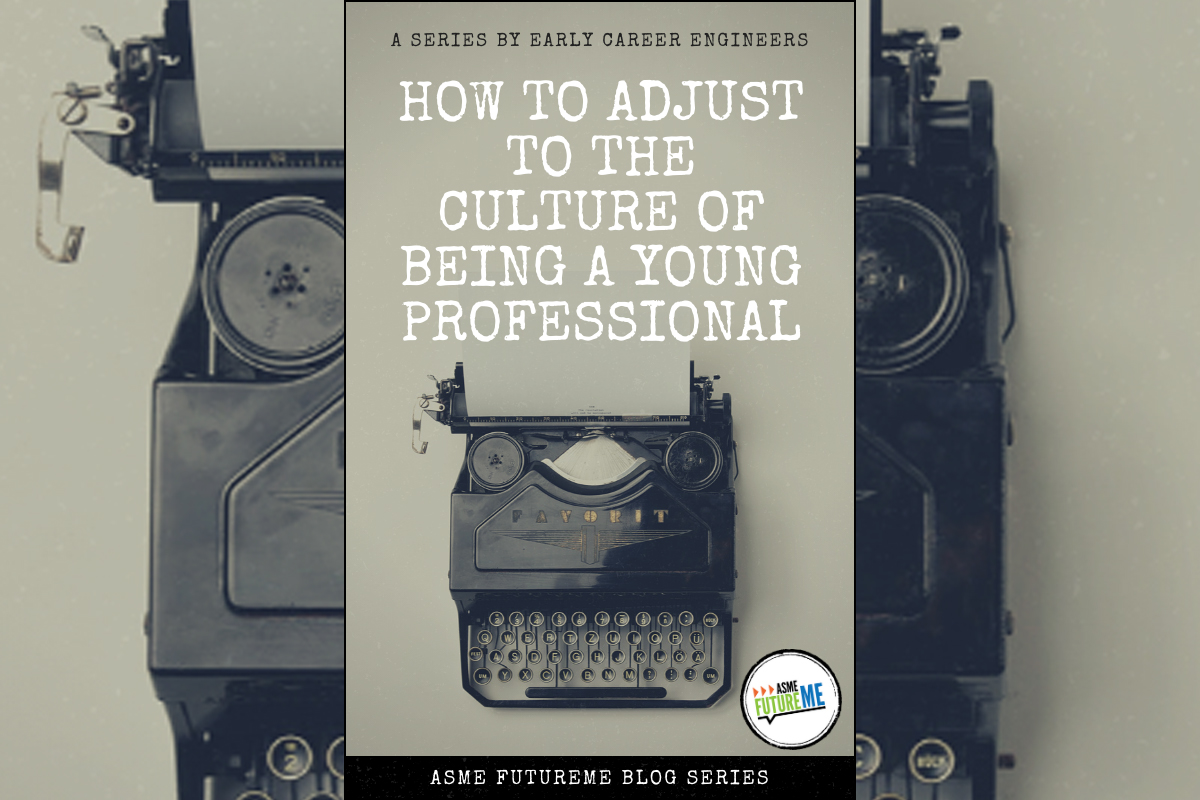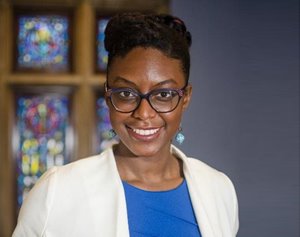Blog: Being a Young Professional - Academic Research
Blog: Being a Young Professional - Academic Research


Today’s early career engineer has to not only be technically sound, he/she has to adapt to a business engineering environment while navigating the fast pace of changing technologies and advancements.
This blog entry was derived from the FutureME Mini-Talks program held at the 2019 ASME E-Fest North which covered different perspectives and best practices on transitioning from school to work.
Transitioning into the career of Academic Research
Dr. DeLean Tolbert, assistant professor in the industrial and manufacturing systems engineering department at the University of Michigan Dearborn, did not start undergraduate studies with a plan to do research. She just went towards research as the opportunities presented themselves. During her mini-talk, she shared a few stories from her pathway, which might seem disconnected at first. But, in reality, all of the experiences shared in her stories helped her become an academic researcher and now a faculty member.
She started her undergraduate education at the University of Michigan Dearborn. But even before that, she knew that she liked to investigate, answer questions, find problems and develop solutions. That is a skill that she wants to apply everywhere. Regardless of her job title, she brings her investigative skills to the job. So, when she got to the University of Michigan Dearborn, she was wondering: “What kind of problems need to be solved? How can I apply my skills?” Her first opportunity was when the chancellor invited her and a colleague to answer questions about campus housing. Her campus was small and did not have housing. The chancellor asked Dr. Tolbert to survey her peers and ask them, to describe their UM-Dearborn experiences and identify what resources would help them be more successful. That was one of her first projects where she had to figure out what the problem was, find data and present it to whoever asked her for the data. However, after that experience, she did not get another research experience until she was a senior in college.
Between freshman year and senior year, she was also a NSBE (National Society of Black Engineers) chapter president. Since part of the mission is to “succeed academically, she identified an area of weakness for some of the NSBE members, mathematics. In facts she learned that mathematics served as a gatekeeper for all engineering students. She wanted to help some of her colleagues who were struggling, but had no idea how to do it. He thought that if she could study engineering education, she might be able to help her friends in NSBE and in engineering succeed in their engineering courses.
A couple of years later, she accepted an internship with Verizon Wireless. She enjoyed working on the RF team and performed very well. Her boss valued her contributions to the company, but Dr. Tolbert did not feel satisfied. And she kept having research questions in her mind; questions that she would think about between the jobs assignments. Soon she realized that she needed help making sense of these questions and ideas. She was finishing her electrical engineering degree and was doing well at Verizon, but still, she was thinking about research all the time and there was no opportunity to do the type of research she wanted to do at in the field. Thus, Dr. Tolbert was completely conflicted.
Her mentor played a big role in resolving her conflict. He was an executive director of a STEM outreach program in Detroit called DAPCEP. Dr. Tolbert was finishing her senior year when her mentor said to her, “I want to talk to you about where you want to be when you're done with this degree.” After listening to Dr. Tolbert’s conflict, her mentor connected her to someone who helped him during his master’s degree. So, it was basically Dr. Tolbert’s mentor who connected her to his mentor’s mentor. During the 45 minute conversation with that mentor, he helped her decide that research was the way to go for Dr. Tolbert. Thus, she went to the University of Michigan for her master's degree in Industrial and Operations Engineering. Thus, we see that mentors do have a great role to play towards making better decisions.
During her master’s degree, she had new opportunities. Such is usually the case when one goes to new and newer levels. She got to work on a research project that had nothing to do with her master's degree. Absolutely nothing. But it was an opportunity. And when she took that opportunity, she was able to publish her first paper. The advisor of that paper was the advisor who told her about pursuing Engineering Education Research. Her advisor had gone to Purdue University and she asked Dr. Tolbert to consider the EER program there.. So, that was another mentor who connected her to someone in her network and educated her on resources that lined up with her skill set. Dr. Tolbert then went to Purdue University and there she met another advisor, Dr. Monica Cardella. Dr. Cardella gave her more opportunities to do big and small projects that were not connected to the surface but helped her develop a breadth of knowledge across various engineering disciplines. She always found new ways to make connections across her projects.
This was Dr. Tolbert’s journey. It was not easy to transition from one area of research or work to another. And she is still learning a lot. One key takeaway which Dr. Tolbert wanted everyone to remember from her talk is to pay attention to your skills. In her life, she paid attention and realized that she had skills for asking the right questions. And it helped her make connections between experiences that made no sense on the surface. The second thing which she emphasized during the talk was to examine your academic and professional life. It is possible that an individual might find that he/she is always drawn to certain activities or projects or things like that. If individuals start to make the connection between their skills and the types of problems that they are willing to solve, that will transcend any job or experience as they will always be moving in that direction. The third thing which she wanted everyone to remember is to connect. People should be able to connect with others in their network and learn from them. And when they transition into the workplace, sometimes mentors will find them. These mentors may see potential in their employees and colleagues and they will work to mine that out. But often people will have to go find the mentors that they look up to and ask if they would not mind spending some time with them, going to lunch and answering questions. The final thing which she would like everyone to remember is to grow. There was a lot of ambiguity when she was working through all those different projects and gaining experiences (being an NSBE chapter president, doing research for a chancellor or working at Verizon Wireless) that just did not make sense on the surface. People are often unaware of how a story is going to come together.
Engineers must build this skill set and learn how to address uncertainty, how to deal with ambiguous problems, how to think and strategize to get to the other side of that within an ecosystem. In an ecosystem, you're in the center and you are connected to a home system, a community system, a society and culture, and the world. In each of those levels, you should find, try to make the connections between the mentors and people you meet in them. Between the experiences that you have in them and the resources that are available.
Summarizing once again, the following are the points which she would like everyone to remember from her talk:
- Pay Attention to your skills
- Examine your academic and professional career
- Connect with people in your network
- Keep Growing while keeping uncertainty in control.
Dr. DeLean Tolbert is an assistant professor in the industrial and manufacturing systems engineering department at the University of Michigan Dearborn. She earned her Ph.D. in Engineering Education at Purdue University. She interweaves her passion for educational success for all through her research investigations, her community involvement and through her service to the academic community. For three years, DeLean served as the lead graduate student on Dr. Monica Cadella's NSF career grant tied to mathematics as a gatekeeper to engineering, the interplay between design thinking and mathematical thinking. Currently DeLean is designing a research agenda to investigate the relationship between two research words she dances in, design creativity and engineering and historically underrepresented in underserved communities.



.png?width=854&height=480&ext=.png)





